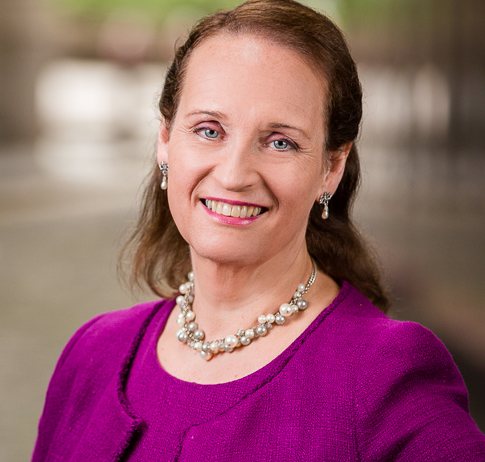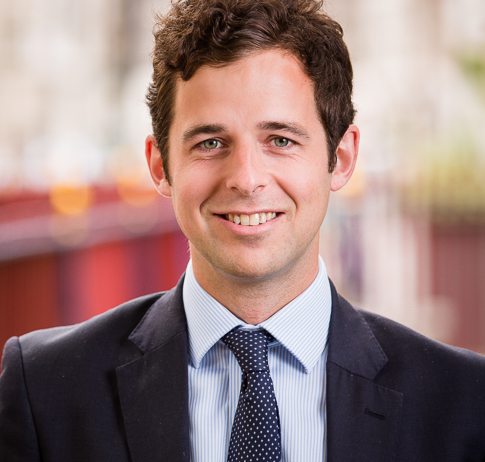#WithersWorldCup #WhoWillWin
Whether or not you are a football fan, a global event such as the FIFA World Cup 2018 brings together communities from all around the world. Teams with different playing styles and fans with different cultures. We hope you have been enjoying our coverage of the games so far.
As we move into the final stages of the tournament, we continue to highlight the weird and wonderful legal quirks of the participating teams and the similarities and the differences between diverse nations and legal systems. With a twist.
All our comparisons will have a specific focus on our firm's key sectors. Each game, we'll release our brief comparisons of the teams involved and draw conclusions as to who we think 'wins' in the legal stakes. With our global teams having their say, will our predictions reflect the outcome of the World Cup? Follow us to find out*.
Click here for our comparisons on games in the group stage - round one, two , three and the knockout round.
Final
France v Croatia – Sunday 15 July – Sport
If size matters, Croatia is doomed to lose. But despite the lack of former colonies providing football talent and a population that is a mere 20th of that of France, the World Cup final is an 11 on 11 match starting at nil to nil.
Players on both sides will be playing the game of their life in pursuit of glory. Yet a Croatian win would consecrate the first world champions as national heroes whereas France has already had the honour of topping the football world in 1998.
At Withers we work a lot with sports and certainly much with football across Europe. When advising players and their agents on international transfers we look first of all at fundamental legal safeguards provided under the relevant jurisdiction.
France and Croatia have not just great football tradition but also a sound and reliable legal framework protecting football players.
Both have specific legislation on sports and players employment contracts as well as standard playing contract. Moreover, in both countries players' salaries are protected under the ‘football creditor rule’, whereby pursuant to the domestic licensing system admission to the league championship is subject to full payment of wages accrued over the prior season.
However, unlike France, Croatia does not have a collective bargaining agreement negotiated between the league and the players association and, as a consequence, individually negotiated agreements must make up for lack of protections provided through collective negotiation, such as limitations to reciprocal use of players' image rights. In France, the Charte du Football Professionnel offers a fairly wide umbrella of protections for players, e.g. in connection with injury or illness of the player, termination by the club without cause and the clubs' exploitation of the players' image rights (both collectively as a team and in a group of not less than 5 players in a club capacity and subject to players' endorsement agreements with respect to boots and goalkeeper gloves).
For this only reason, notwithstanding our sympathy for Croatia, France is at least one goal ahead: 3-2 for Les Bleus.
Luca Ferrari, Partner, corporate, Milan
Third place play-off
Belgium v England – Saturday 14 July – Talent and creatives
Given that all members of England's team ply their trade in England's top domestic league, we wonder how many players honing their craft in England's lower divisions will watch the third place match between Belgium and England hoping that 2022 will be their breakthrough year. As a professional player, climbing the tiers of England's football leagues is no easy task, but it may be an easier path to navigate than the busking permit and licensing laws in Belgium and England.
Many famous singers practiced their craft singing on city streets. Street performance is a regulated activity in both countries and although each countries has technical requirements that performers must be aware of, certain cities in Belgium may actually impose a fine on performers if they annoy their audience.
If you're singing on the streets in England know that you can't make too much noise, block public highways (footpaths, pavements, open pedestrian areas), display notices asking for money, perform in only certain parts of the town and only for a limited period of time. Belgium is a bit trickier. Cities in Belgium designate certain squares were performers can operate, prohibit noise levels above 60 decibels, and even require performers to have a degree in arts in order to receive a permit. But if you're performing in Leuven you need to be especially careful, as street musicians can be fined for playing off-key if it disturbs public order or peace. Imagine how many how many famous singers would have been fined heavily early in their career if they paved their way performing in Leuven?
A 2-1 win to England, in extra time.
Michael Rueda, Associate, corporate, Greenwich and New York
Libby Payne, Associate, employment, London
Semi finals
Croatia v England – Wednesday 11 July – Rural real estate
One game stands in the way of England making the World Cup final for the first time since 1966. With the hope that it does not go all the way to penalties, we compare the penalties of the rural real estate market in Croatia and England.
An overseas national is not permitted to invest in Croatian farmland in their own name. An investor must establish a Croatian company which can in turn purchase the land. This process takes time and is inevitably subject to the costs associated with establishing the entity. In addition a local accountant must be retained to produce monthly accounts, notaries must be paid and documents translated. Even the agents and lawyers in Croatia scoop a higher commission than in England.
By contrast England boasts a straightforward system where any individual can purchase land provided they pass anti-money laundering checks. The fees payable tend to be lower and the system more transparent – no need for the VAR system here.
Whilst there are some similarities between the two countries; for instance the purchase tax is roughly equivalent to England's stamp duty land tax at 5%; a key factor to beware of is that as a result of the mass exodus of a large part of the Croatian population during the war, it is not uncommon for the registered owner of the property to be different to the actual person in possession of the property. This has caused a great deal of confusion over the years, to the extent that the government will not permit the purchase of property with unclear ownership. Establishing who owns the land is a key first step for any investor into Croatian land. Conversely in England there are processes to follow to ensure that any beneficial ownership claims will be overreached.
Given the differences between the two systems we know which way our investment would go – it would be coming home!
2-1 England after extra time.
Bertie Hoskyns-Abrahall, Partner, private client and tax, London
France v Belgium – Tuesday 10 July – Residential real estate
France may have beaten Belgium in all of their previous World Cup encounters, but it's Belgium who are the ones to beat today. The same can be said of property and the tax implications of owning additional properties in these two countries.
In France, gains realised on the sale of real property are taxable to capital gains tax at 19% plus a further social tax of 15.5%. These rates start to taper down from the fifth year of ownership, but you'll have to own the property for 22 years or more for the capital gains tax to reduce to nothing, and for 30 years or more for the social tax to reduce to nothing!
In Belgium however, gains from the sale of real property are taxable to capital gains tax at only 16.5% with local taxes bringing this up to approximately 18%, and this tax is not payable at all once you have owned the property for 5 years or more. With this relatively comprehensive 5 year cut off point, we have to award Belgium the win.
Belgium 3-1 France
George Coleman, Associate, real estate, London
Quarter finals
Sweden v England – Saturday 7 July – Art and cultural institutions/ Divorce and family
England was forced to play a grueling 120 minutes of physical game before coming out victorious on penalties against Colombia. Meanwhile, Sweden was able to secure a win in 90 minutes of game time. As such, it will be interesting to see if the English team will have the energy to make it past the Swedes.
While England's and Sweden's teams may be starting from different energy levels on Saturday, both countries are largely at the same baseline when it comes to protecting cultural heritage. England and Sweden are both States Parties to the 1954 Hague Convention and the 1970 UNESCO Convention.
England has enacted legislation to protect cultural heritage, ranging from the Ancient Monuments and Archaeological Areas Act of 1979 to the Dealing in Cultural Objects (Offences) Act of 2003. England's Reviewing Committee on the Export of Works of Art and Objects of Cultural Interest makes recommendations to the Secretary of State regarding the issuing of export licenses for items of cultural property that are considered to be of outstanding national importance. If cultural property is sold to a foreign buyer, the Reviewing Committee may advise the Secretary of State to delay the granting of an export license in order to allow time for a British buyer to raise funds to buy the cultural property instead and keep it in England. England also established a Spoliation Advisory Panel, which considers claims from anyone (or their heirs) who lost possession of a cultural object during the Nazi era and issues non-binding recommendations.
Sweden enacted the Heritage Conservation Act in 1988 and amended the Act in 2002. The Act created the County Administrative Board and the National Heritage Board, both of which supervise the management of heritage conservation resources for ancient monuments and remains, cultural heritage buildings, and ecclesiastical cultural heritage property. The National Heritage Board also reviews export permit applications for cultural property and requires that special permission be granted before older Swedish and foreign cultural goods of major importance to Swedish national cultural heritage be taken out of Sweden. In 2002, the National Heritage Board promulgated regulations on permits for the export from Sweden of certain older cultural goods.
1-1 with England winning on penalties.
Diana Wierbicki, Partner, private client and tax, New York
Amanda Rottermund, Associate, private client and tax, New York
And how do the two teams compare when considering divorce and family?
Having avoided the stress of the dreaded penalty shoot-out so far, it is safe to say that Sweden's journey to the quarter finals has been much smoother than their English counter-parts. And the same can be said about their divorce process.
In Sweden seeking a divorce is relatively easy and neither spouse is required to provide a reason why the marriage has broken down and no lawyers are required if the parties agree. By contrast, England has a 'fault' based system whereby a divorcing spouse must either blame the other party for the breakdown of the marriage or wait a minimum of 2 years before they are able to get divorced and just like penalties, this causes great tension and emotions run high! However, with growing calls for the introduction of 'no fault' divorce in England and the Supreme Court currently considering this issue in the case of Owens v Owens (no relation to Michael!)…things could be set to change…
In the meantime, with Sweden's seemingly 'no fault' defence having kept 3 clean-sheets in the tournament already, England will be hoping that things go less smoothly for them on Saturday afternoon, otherwise they'll find themselves waiting for a minimum of 2 years (until the Euros) before they get another shot at glory!
A 2-0 win to England (anything but penalties…)
Thomas Kurland, Associate, divorce and family, London
Russia v Croatia – Saturday 7 July –Technology/ Pensions
Russia has demonstrated the importance of being buoyed by a strong home crowd while Croatia have continued their trend of great performances at tournament football, a trend which started with an impressive 3rd place finish at their debut World Cup in 1998.
Meanwhile, VAR technology has been one of the bigger talking points at this World Cup and has been credited for the highest number of penalties at a World Cup, even before the beginning of the quarter-finals.
Both Russia and Croatia have recognised that, to be as near to the cutting edge of technological development as possible, research and development services must be promoted.
Russia has taken measures to make itself competitive to this end, by:
- making certain R&D services exempt from value added tax;
- making certain R&D service-related expenses deductible using a coefficient of 1.5 (i.e. 150% of the value of such expenses can be deducted); and
- allowing fixed assets used in science and technology to be depreciated with an accelerated coefficient of up to 3.
Meanwhile, Croatia has enabled registered scientific organisations, centres of scientific excellence, individual scientists, and groups of scientists to apply for the state subsidies and tax incentives for scientific research, basic research, and applied R&D research. The percentage of the costs covered by the state subsidies can vary between 25% and 100%, and this depends on the type of research being carried out or the size of the entrepreneurial entity in accounting terms. In addition, the corporate income tax base can be decreased by up to 150% of the amount of the costs covered by the state subsidy.
However, Russia clinches the tie on home soil with the implementation of special economic zones throughout the nation, among which are technical research and implementation zones for scientific projects: these benefit from exemptions on corporate asset tax and transport tax and a reduced rate of profits tax of between 13.5-15.5% for 10 years.
2-1 Russia
Jamal Saleh, Associate, corporate, London
And now we compare their position on pensions.
Russia and Croatia both secured their places in the quarter-finals in nail biting penalty shoot-outs. Russia’s strong defensive play hampered Spain's 'tika-taka' football, while Croatia gave a disappointingly sluggish and uninspiring performance after a promising start to their match with Denmark. Viewers will be hoping for a more dynamic performance from Croatia on Saturday, whose team is on average almost a year younger than Russia's, at 27.9 years compared to Russia's 28.8.
In international sporting terms, 28 is relatively senior and retirement not far off. Retirement for the ordinary Russian is, however, a way off at age 28 – retirement age is currently 60 for men and 55 for women. An announcement by the Russian Prime Minister, Dmitry Medvedev, on 28th June that State pension age will increase to 65 for men and 63 for women by 2034 has been met with anger and country-wide demonstrations. Some have accused the government of trying to bury the news by making the announcement in the middle of the World Cup.
Increasing pension ages is not an uncommon theme internationally; in 2017 the Croatian government announced pension reform to control the national pension costs, including increasing pension age to 67 for men and women by 2038 (it is currently 65 for men and 62 for women) and penalising early retirement before age 65. The crucial difference for Russians over Croatians is the significant difference in life expectancy – World Health Organisation statistics published in 2017 put Croatian male life expectancy at 74.7 years, while Russian male life expectancy is some ten years less at just 64.7 years. Even allowing for ever improving mortality rates, a retirement age of 65 will not leave the average Russian man very long to enjoy his retirement.
A 1-1 draw, with Croatia winning in extra time.
Estella Bogira, Associate, private client and tax, London
Uruguay v France – Friday 6 July –Technology/ Elderly and vulnerable people
Uruguay have lifted the World Cup twice before, France only once, but both sides are going into the first of the quarter finals full of confidence given recent performances, so we are expecting plenty of dynamism and drama during the match in Nizhny Novgorod.
Unlike most of the nations in the World Cup, the European Commission recognised Uruguay's data protection laws as providing adequate protection for personal data. Since 2012 the recognition decision in 2012 organisations in the European Union have been permitted to transfer personal data to Uruguay without the need for additional safeguards, which can be a real advantage for businesses (particularly technology businesses) located in Uruguay which provide, or want to provide, services to clients in the EU.
With the EU General Data Protection Regulation coming into force in France, along with the other 27 EU member states, on 25 May 2018. Building on previous laws, individuals in France now have more rights in respect of the processing of the personal data than ever before. While Uruguay's laws are still regarded as providing adequate protection for personal data, France are among the EU countries pushing data protection rights into a new era.
Will we see the youthful French side push into a new era of success with a chance of matching Uruguay's record or, despite the injury to Edinson Cavani, will the South Americans push themselves hard to reach the semi-finals as they last did back in South Africa in 2010? We're predicting a tight contest, with France winning 1-0 in extra time.
Rosanna Foster, Associate, IP & Technology, London
And how do the two teams compare on mental capacity?
France has been unbeaten in its last nine World Cup meetings with South American nations. By contrast with Uruguay has won its opening four games in this World Cup-for the first time since 1930. France therefore starts somewhat ahead of the game and the same can be said of the two countries' mental capacity legislation.
France has a well-developed and up to date legal structure to enable decisions about financial and health and welfare matters to be made on behalf of a person who lacks the mental capacity to decide for themselves. Updated in 2007, French Courts can appoint a representative to deal with matters on behalf of the incapable person and individuals can, in the alternative, make provision for this sort of decision making in advance by making a Lasting Power of Attorney – Mandat de Protection Future – which enables an adult to anticipate future mental incapacity and appoint an individual to represent and manage his property in due course. By contrast, Uruguay's mental health laws seem to be significantly out of date. Last revised in the 1930s, they do provide for a court to appoint a representative to deal with matters for an incapable person, but there appears to be no equivalent of the Lasting Power of Attorney allowing an individual to set up this kind of arrangement in advance for themselves.
Like many countries around the world, however, Uruguay is keenly aware of the need to update its laws and procedures relating to incapacitated people and is contemplating a series of new laws. We predict that France's updated legal position in the mental capacity area will be mirrored on the football field – France 3- Uruguay 1.
Julia Abrey, Partner, private client and tax, London
Brazil v Belgium – Friday 6 July –Hotels and hospitality
Despite the fact that Brazil must be considered favourites, Belgium's stoppage time winner against Japan is a warning that "the show ain't over until…" and, presumably, the world's most theatrical player won't disagree!
In 2017 Brazilian hotels are reported to have posted an 11.7% growth in RevPAR (Revenue per Available Room) whilst in Belgium the equivalent figure is said to have been 17.3%.
Although in both countries it is normal to include a non-compete provision in a hotel management agreement, that won't apply on the field for this game.
2-1 Belgium
Chris Greiner, Consultant, Sydney
*The information and comments in this blog are for the general information of the reader and are not intended as legal advice or opinions to be relied upon in relation to any particular circumstances. For particular application of the law to specific situations, the reader should seek professional advice.






